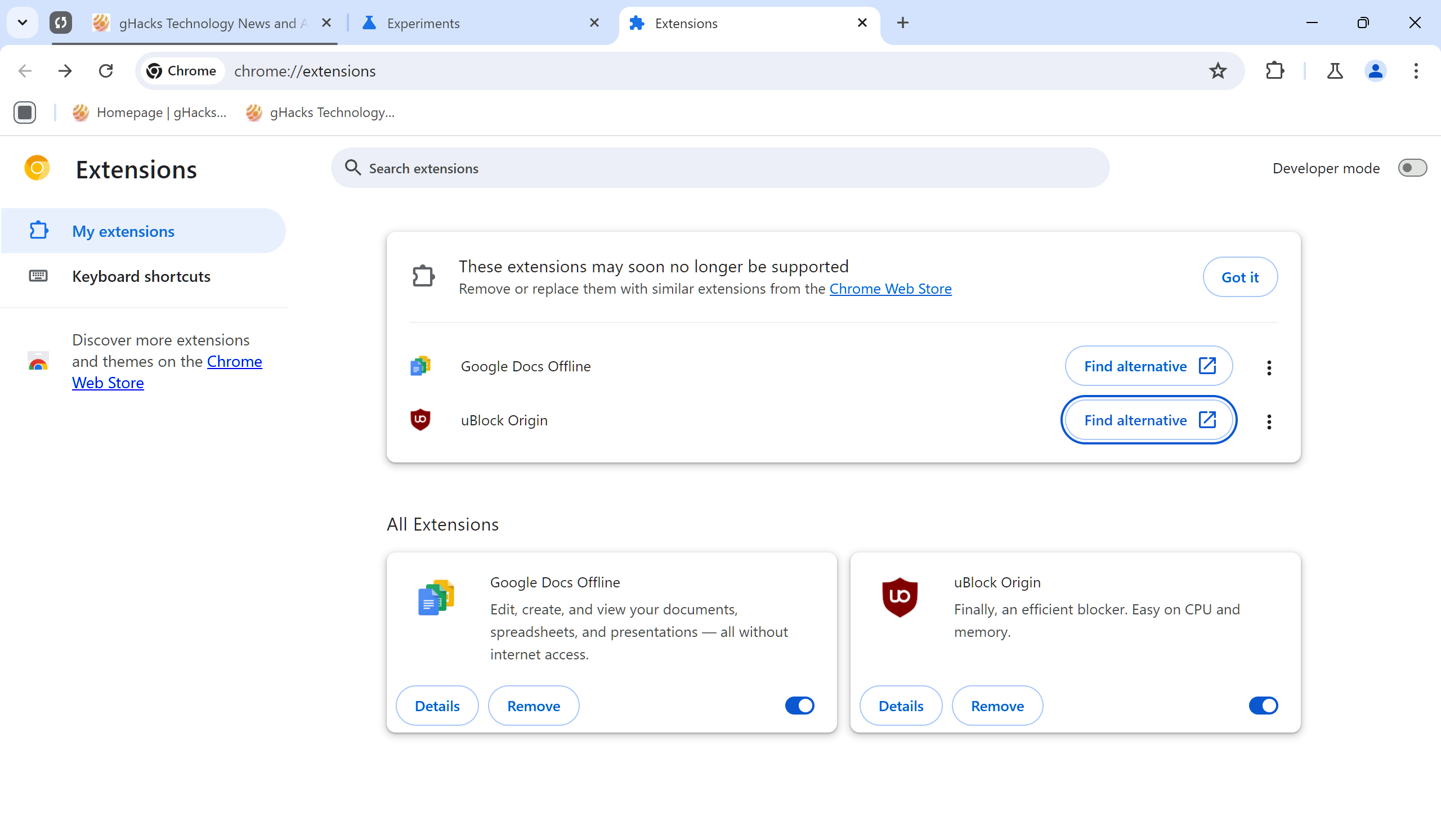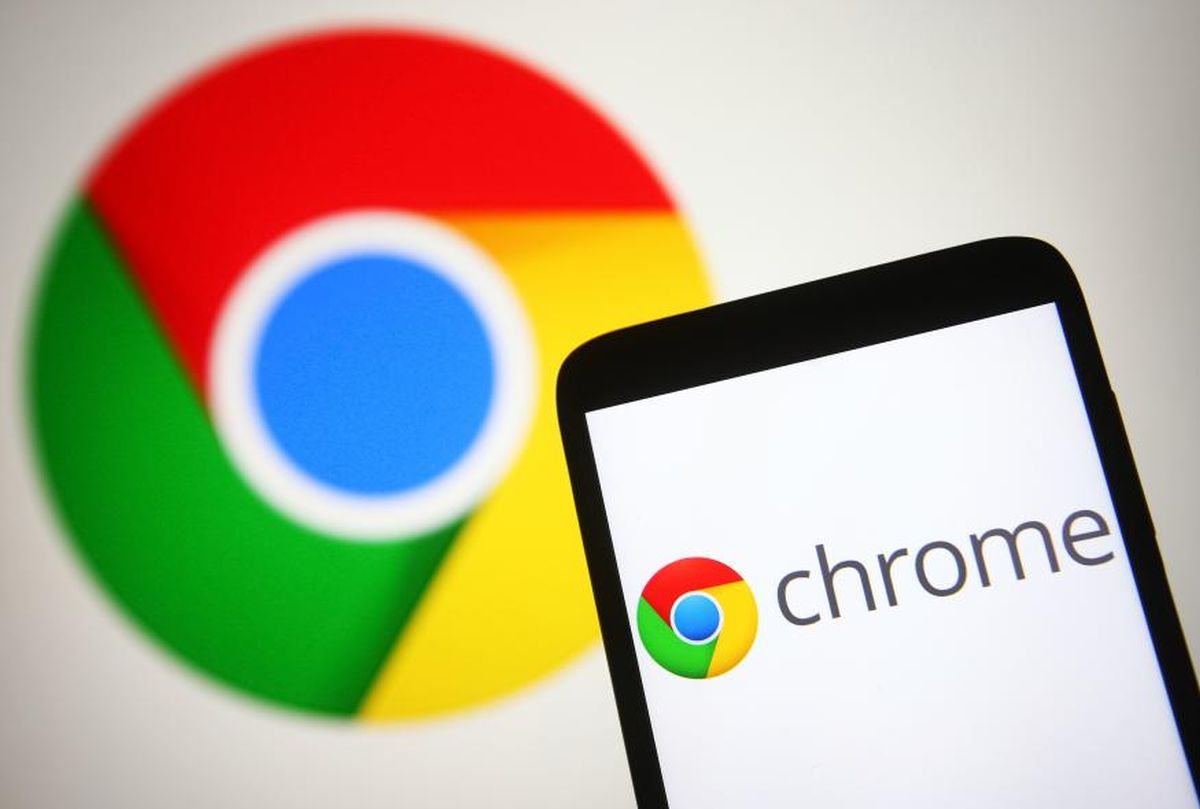Google has published an update to the retirement schedule for the so-called Manifest V2 extensions in the Chrome web browser. Starting this June, Chrome will inform users with classic extensions about the withdrawal.
Manifests are sets of rules for extensions. They define the capabilities of extensions. When Google published the initial draft of Manifest V3, it was heavily criticized for it.
This initial project had a significant impact on content blockers, privacy extensions, and many other types of extensions. Many called it the end of ad blockers in Chrome because of this. In the following years, Google delayed the rollout and updated the project several times to address some of these concerns.
Despite all the changes, Manifest V3 still limits certain capabilities. The developer of uBlock Origin has listed some of them on GitHub. According to the information, the current capabilities of uBlock Origin such as dynamic filtering, certain site switches or regular expression-based filters are not supported by Manifest V3.
The launch of uBlock Origin Minus highlights this. It is an extension of Manifest V3, but limited compared to the Manifest V2 based uBlock Origin.
Google’s Manifest V2 Retirement Schedule

Google plans to show a banner to Chrome users who use Manifest V2 extensions in their browser. This starts on June 3 for the development editions – Beta, Dev and Canary – of the browser.
Manifest V2 extensions that have the Feature badge will lose that badge on this day.
The Manage Chrome Extensions page lists extensions that will soon be deprecated. It provides a link to read the change and “find alternative” buttons next to each extension.
Then, in the coming months, Manifest V2 extensions will be automatically disabled by Chrome. Google says users can re-enable the extensions for a short period of time. This option will be removed eventually, leaving users with no option to re-enable their extensions.
The change is rolling out to development builds first, but will also affect Chrome Stable users in the coming months.
Enterprise customers get a one-year extension. They should set the ExtensionManifestV2Availability rule for this. Google plans to lift the rules in June 2025.
A tip: set chrome://flags/#extension-manifest-v2-deprecation-warning to Enabled in Chrome to see which of the installed extensions still use Manifest V2.
Closing words
Most Chromium-based browsers will follow Google. Some may extend support for Manifest V2 extensions, but eventually support is likely to drop.
This leaves Firefox as an alternative, as it will continue to support Manifest V2 through Manifest V3.
It’s not yet clear how many extensions are affected by Google’s decision. Some cannot be upgraded to Manifest V3, at least not without introducing restrictions or removing features.
Extensions that are no longer supported may also stop working, provided they have not been updated to Manifest V3.
In general, content blockers will no longer be as effective as they used to be in Chromium-based browsers. Most users may not notice the change. Content blockers still work, but with limitations.
Integrated content blockers continue to work. This is the case with Brave, Vivaldi or Opera, which include options to block ads and tracking without installing extensions.
Summary

Item name
Google will disable classic Chrome extensions in the coming months
Description
Starting in June 2024, Google will flag and then disable Manifest V2 extensions from its Google Chrome web browser.
Author
Martin Brinkman
Publisher
Ghacks Tech News
Logo

Advertising


